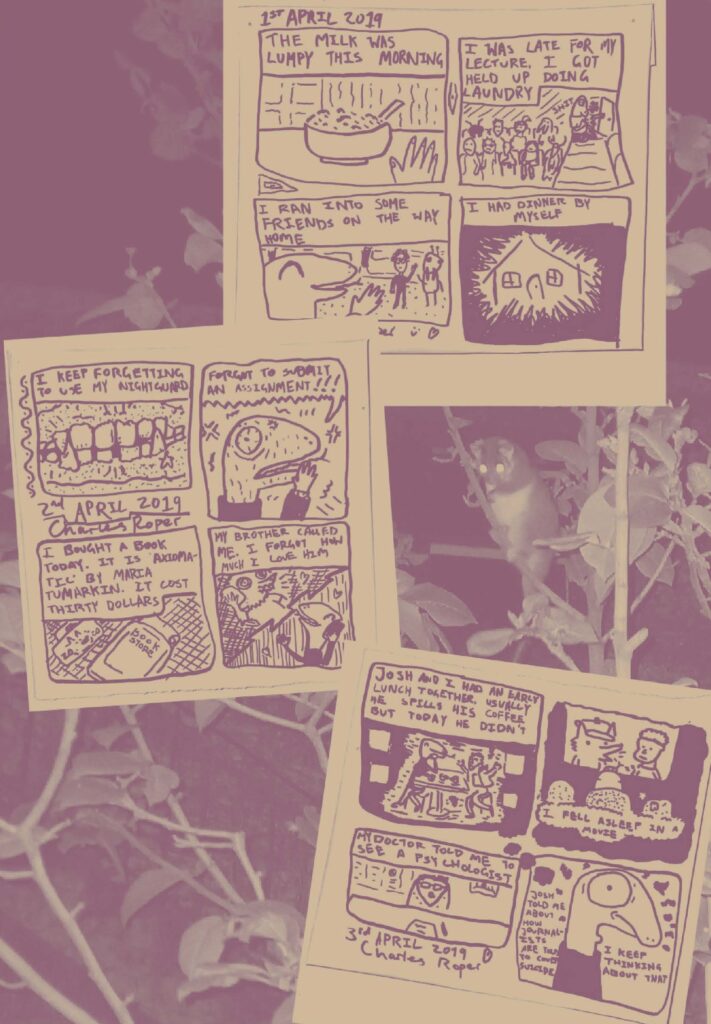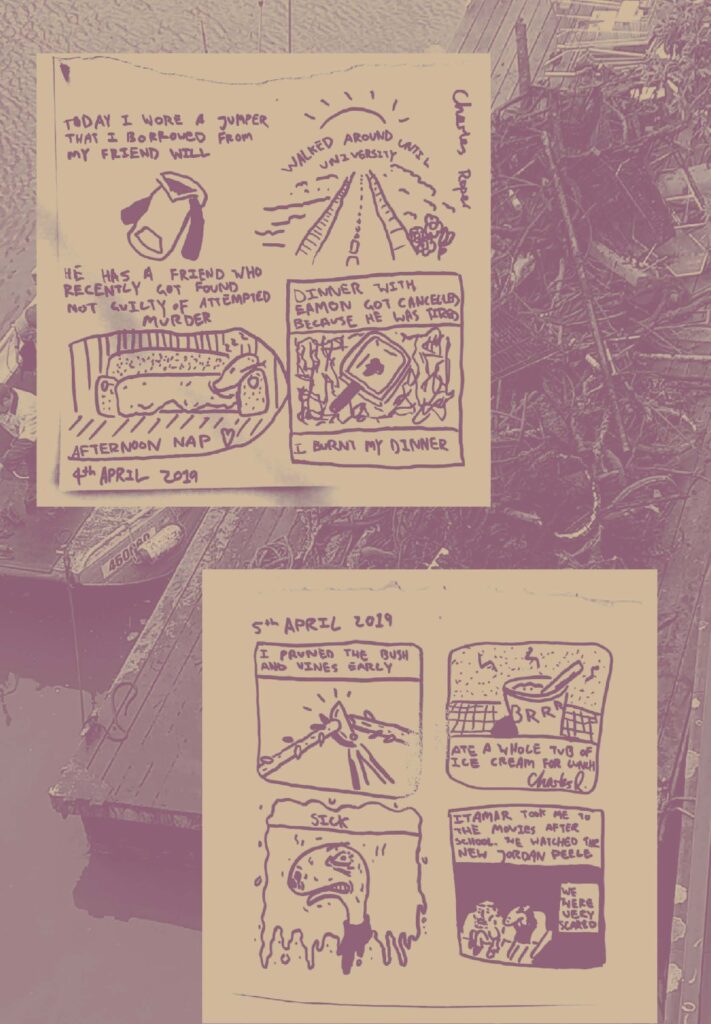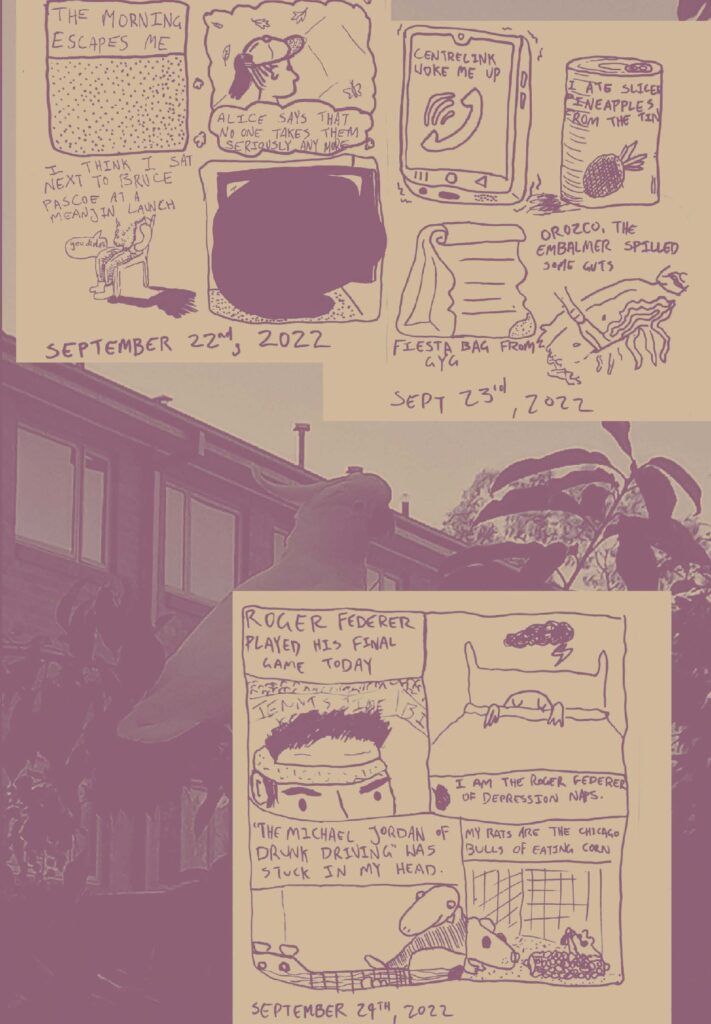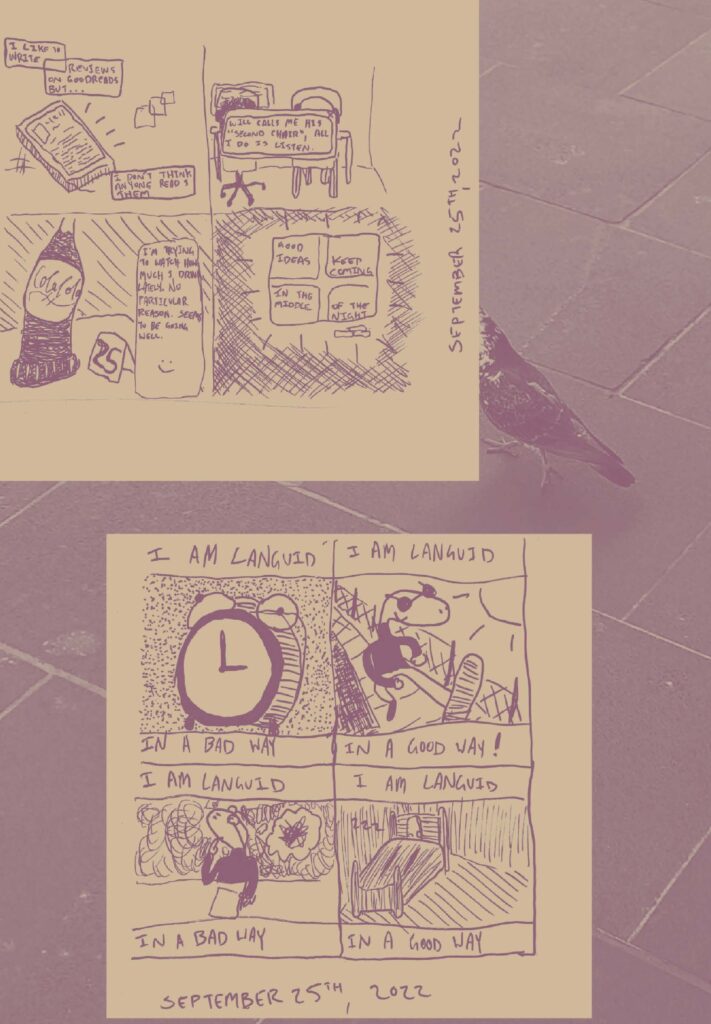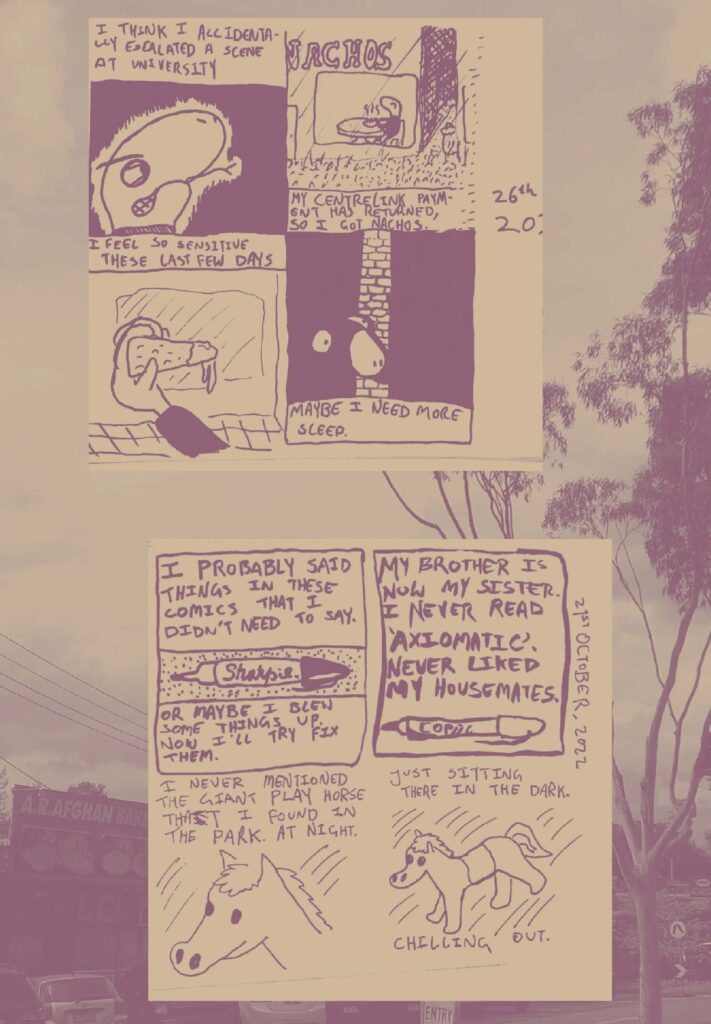After lunch on Saturdays, the stationery shop owned by George Ross became a quiet refuge from the noise and bustle of Elizabeth Street outside. On Monday mornings it was filled with bankers’ boys and under-clerks buying ledgers and ink for the new week but, as the weekend neared, the flow of customers thinned until Ross and his daughter Charlotte were alone for minutes and even hours at a time. Ross, always frugal, sent the shop boy away at noon and handled the remaining transactions himself.
Occasionally Charlotte would add a purchase to a customer’s account, but largely her days were filled with dusting and tidying and bringing cups of tea, hot and sweet as her father preferred it, to his cluttered desk. In summer, keeping the shop clean could be a continuous activity. The north winds would whip up dust eddies of clay and dried dung in the street outside, which would creep under the door or billow in whenever it blew ajar. The heat was stifling; Charlotte’s broom handle would become slick with sweat and her pen would slide between her damp fingers as she guided it across the page.
But even on the hottest, dirtiest days, Charlotte loved her father’s shop. Its walls were lined with shelves that housed fat leather ledgers, reams of thick, creamy paper and a small selection of three-volume novels brought by boat from England. Beneath the polished wood of the counter tops were cupboards devoted to pens and inks and graphite pencils, and to slim eyedroppers that could fill even the most delicate glass reservoirs. In the front windows, her father displayed a collection of ornate and antiquated ink pots, the number of which rose steadily as friends and associates donated specimens from their own homes. It was his only indulgence; aside, perhaps, from his quiet love for his daughter.
The pair lived above the shop in a suite of rooms that trapped the heat in the summer and seemed to amplify all the din of the street at night. They were neatly kept, however, and well furnished to Charlotte’s simple tastes. Her mother had died of fever following a stillbirth when Charlotte was barely five years old; since then Charlotte had kept house, and her father. She fussed over him when he was so deep in his ledgers that he forgot to eat, reminded him to go to bed if he was distracted by his reading, and ensured his clothing was clean and unmarked by ink—at least at the beginning of the day. As a child, she had hated leaving home for her lessons, fearing that he too would take ill and abandon her if she let him out of her sight for too long. She envied girls who were taught by a governess at home, where they could always keep an eye on their parents. Instead, the Rosses’ maid took her in a cab to her first school in Carlton, and later to the ladies’ college in East Melbourne.
Mrs Bunton was more to the Rosses than her title suggested, and to Charlotte in particular once her mother was gone. She cooked their meals and did the heavy housework, but she also comforted Charlotte if she fell and scraped her knees or stood in as chaperone when George Ross was busy. As Charlotte grew older and more capable, less was asked of Mrs Bunton, but she continued to cook and clean for them, leaving Charlotte to spend most of her time downstairs. She served customers sometimes, but more often she copied invoices for her father in her neat, womanly hand. She memorised the wording as she did so, and as she filed the paperwork in the
drawers at the back of the shop, she scrutinised the carbons carefully, learning about shipping times and order quantities and mark-ups, and the polite way to tell a supplier that his prices were too high. When the shop was quiet, she would run her fingers over the curves of thick leather spines and daydream about owning her own shop, which, in her mind, was this one, filled with ink and paper and words—and a sense of purpose.
She knew better than to speak of such dreams to her father. He clung to the belief that Charlotte would be happiest well married and mother to a flock of red-cheeked boys. A man in trade or a fellow shopkeeper, he thought: steady and without pretension. When Charlotte imagined this she felt her stomach lurch and her breath come thin and fast, and she concentrated on entering long lines of numbers into the accounts ledger until the sums came out right and her father’s vision for her future receded.
Charlotte had few friends, but she was not lonely. She loved her father and their quiet life and the calm routine of her existence. She had no reason to wonder what she might be lacking until the day Flora Dalton swept through the stationery shop’s broad wooden door.
The new year had arrived days earlier, bringing with it a heavy, sticky heat that left Charlotte feeling weary and short of breath. The promised rain had begun, finally, that morning and had quickly turned the streets into quagmires of mud and horse muck, scored by rivulets of clay-yellow water rushing downhill, as Elizabeth Street reached back in time to become the creek it had once been. Charlotte had just washed the shop windows, but now their lower halves were spattered with the same grime as the flooring near the shop door.
The terrible weather meant that there were fewer customers than usual, so Charlotte chose a novel from the shop’s stocks to read between her trips upstairs for her father’s tea, and quickly became lost in the story.
She was startled when the door burst open, pushed by a firm hand then flung inwards by the wind, and a splatter of thick raindrops blew in from the street. They were followed by the most beautiful woman Charlotte had ever seen. Her fair hair hung in damp curls and her silk skirts were soaked through at the floor and clinging to her feet, but such minor imperfections seemed only to render her warm brown eyes and bright complexion more arresting. It was not only her beauty, however, that froze Charlotte in her place. The air in the shop seemed to spark with new energy: to be enlivened by the woman’s very presence. Her shoulders were straight and her expression open—she was as comfortable here as she would be in her own home. This was a woman, Charlotte thought instantly, who was unaccustomed to self-doubt.
She might well have remained mute and staring if her father’s soft cough hadn’t brought her to her senses.
‘Oh dear. I’m sorry,’ she said, hurriedly marking her place in the book with an old invoice. She placed the book carefully on the counter and moved forward to greet their customer. ‘May I assist you with anything?’
The woman favoured her with an easy smile that induced an odd, tight feeling deep in Charlotte’s chest. ‘What a charming shop you have!’ she said. Her voice, as predicted by her appearance, was beautiful. Light and melodic, with an underlying note of laughter. ‘Why, if Jimmy had told me, I’d have come here sooner.’
‘Jimmy?’ Charlotte’s tongue felt thick and clumsy in her mouth.
‘My brother,’ the woman said, as though it should be obvious. ‘Father sends him to fetch the orders, and he speaks of it as though it were a great trial instead of a pleasant walk with a pretty little shop at the end of it.’
Charlotte’s eyes darted towards the mud-strewn windows, before being drawn back to the woman’s softly rounded face.
‘Well, it would be pleasant on a day more suited to it,’ she went on, looking around the shop and taking in the dark wood fittings and the counters: glass-topped, to display neat lines of pens, nibs and inkpots, some unremarkable and some ornate. ‘Today it was rather more an adventure. At one point I thought my cab might float away.’
‘It’s a good thing it didn’t,’ Charlotte said. ‘Half the men in Melbourne would’ve taken it upon themselves to rescue you—and not one of them up to the task. You’d have been expected to sit there and drown if it came to it. Never mind whether you knew how to swim.’
The woman’s roaming gaze snapped back to Charlotte’s face and she studied her with a new intensity. Not accustomed to much more than a cursory glance from the shop’s customers, Charlotte felt oddly vulnerable, as though the woman wasn’t looking at her so much as through her. She had to fight the urge to look down.
‘You sound like you’re speaking from experience,’ the woman said, brows raised, the corners of her lips betraying the hint of a smile.
Only then did Charlotte realise how inappropriately blunt she’d been. This stranger would undoubtedly see gallantry in the forceful protectiveness of gentlemen. ‘I have a good imagination,’ she said, cheeks burning, ‘and a bad habit of speaking without thinking. I apologise. How can I help you?’
The woman waved the question away with a graceful flick of the hand. ‘You should never apologise for being interesting,’ she said. ‘Very few people are, I find. Least of all those who lay claim to it.’
Still Charlotte berated herself for speaking so rudely. She always felt awkward in conversation: talking either too much or not enough. But this woman made her feel particularly gauche, as though simply being near her had stripped every intelligent thought from Charlotte’s mind. Her gaze fell desperately on the window and the rain beating against it.
‘Your father must need stationery quite urgently,’ she said, feeling stupid.
The woman smiled—a true smile this time—and adjusted smoothly to the change of subject. ‘More that I was in dire need of an escape,’ she said. ‘My brother has a headache, poor dear, which means that we must all suffer alongside him. A little rain seemed quite tolerable in comparison.’ The chatter ran on, effortlessly engaging, until her focus sharpened on Charlotte once more. ‘But I’m forgetting myself,’ she said. ‘You must think me terribly barbaric. I’m Flora Dalton, and I’m very pleased to make your acquaintance.’
She offered her hand, and there was something in the way she looked at Charlotte that made the words sound genuine. Kind, Charlotte thought, as well as beautiful. She must be aware of Charlotte’s embarrassment, but she acted as though there was no cause for it. Her eyes were wide and intelligent, and they regarded Charlotte with curiosity, not disdain.
‘Charlotte Ross,’ she said, and when she took Flora’s hand, just a brief meeting of fingers, something sparked within her: an unfamiliar heat. Flora frowned—a slight flickering of the brows that would have been invisible had Charlotte’s gaze not been so fixed upon her face—and dropped her hand with a brief laugh that did not reach her eyes.
House of Longing can be found here.

